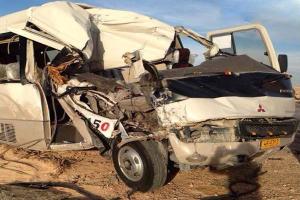By Houda Mzioudet and Ahmed Elumami.
Tripoli, 15 December 2013:
Despite some sporadic attacks and outbursts of aggression at service stations in Tripoli today, . . .[restrict]the petrol crisis was visibly lessening, with all of them open and queues starting to shorten.
Twenty-three people have been arrested in the capital and referred to the prosecutor for vandalising petrol pumps. The Tripoli Security Directorate has also reported yesterday that someone threw a hand grenade into one petrol station but it did not explode.
Mohammed Swesi, spokesman for the directorate, told the Libya Herald that police and the army now had full control over petrol forecourts in the capital. Anyone who had broken the law, he added, was being processed and security forces were managing queues to avoid violence.
Swesi emphasised that incident with the grenade was “quickly rectified”.
The sight of armoured vehicles parked outside the stations and detachments of armed troops patrolling the forecourts appeared to have a calming effect on the public. In some places, such as Zawiat Al-Dahmani, the entire road outside the petrol station had been blocked off to all traffic except those waiting to fill up.
Speaking yesterday, the Deputy Minister of Interior, Bahloul Al-Sayed, told reporters that three petrol station owners had been arrested for refusing to open their stations.
Swesi, however, indicated that the owners may not have let their petrol reservoirs be filled “because they may be scared of acts of vandalism”.
Congestion has been reported in Zawia, Sorman and Sabratha as drivers from Tripoli have travelled to the towns to refill their cars. This pressure is expected to recede in the next 24 hours as the situation in the capital returns to normal.
Meanwhile, the General National Congress announced that it was suspending its agenda today to discuss the security situation and the petrol crisis and the reasons that led to it.
Congress spokesman Omar Hemidan claimed that the mass queues at petrol stations in Tripoli were engineered deliberately “to create chaos and lack of confidence in the government and the Ministry of Oil and Gas”.
The government was winning, however.
“We reviewed what was done by the government and from my point of view I think that it’s done a good job,” a member of national security congressional committee, Abdulmonem Al-Yaser, told the Libya Herald.
In addition, Yaser said, all the relevant authorities and citizens should cooperate with the army and its commitment to discipline until the fuel crisis was over.
[/restrict]







